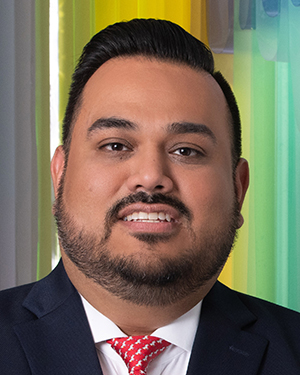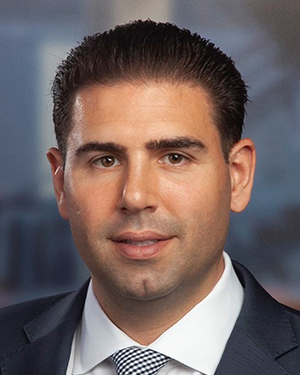During times of economic uncertainty, family offices often have a leg up on institutional investors. Family offices can be more agile in making decisions, can hold assets for longer and they don’t face pressure to distribute dividends to shareholders or deliver short-term returns to investors. And, in fact, evidence from multiple firms shows that family offices plan to step up their investments in commercial real estate in the near term amid the current market volatility.
RIAs and other family office consultants WMRE interviewed this spring noted that family offices had amassed a significant amount of dry powder since the pandemic and had yet to deploy it in many cases. Meanwhile, an inflationary environment and an anticipated increase in distressed situations are making it attractive to step up their real estate investments.
Similarly, a survey of 134 family offices around the world conducted in March-February 2023 on behalf of global fiduciary services provider Ocorian found that 33% of respondents said their allocations to commercial real estate would increase by 50% or more. Research by Goldman Sachs conducted in January-February of this year, which involved 166 institutional family offices, found that 27% planned to increase allocations to private real estate and infrastructure. Likewise, a report published by FINTRX, a unified data and research platform, found that 64% of the more than 160 family offices it added to its database during the second quarter of this year expressed interest in investment in commercial real estate—a level of interest higher than in any other asset class.
Financial services and real estate were also the greatest sources of wealth creation for single-family offices, according to FINTRZ findings. Real estate and construction accounted for 8% of new investment transactions completed by family offices in the second quarter. In the first quarter, real estate and construction accounted for 11% of family office transactions.
Experts with RSM US LLP, a U.S. member firm of RSM International, a global network of independent assurance, tax and consulting firms, agree with the assessment that family offices are poised to step up their investment in commercial real estate. They also note that family offices feel comfortable taking on a greater level of risk in their real estate ventures than they have previously and that they might become a major source of creative capital solutions in the commercial real estate space, offering rescue capital, mezzanine debt and bridge loans as institutional investors continue to stay on the sidelines. At the same time, family offices continue to look for transparency in financial reporting and more flexible venture structures from their real estate partners, leading them to become more selective about which firms they work with, according to a recently published outlook from RSM US LLP.
To discuss this outlook, we spoke with Gene Garcia, real estate senior analyst and principal, and Matt Riccio, real estate senior analyst and director, with RSM US LLP.
This Q&A has been edited for length, style and clarity.
WMRE: What’s attractive to family offices about investment in commercial real estate?
 Gene Garcia: Usually, family offices enjoy long-term appreciation with tax advantages. I think that’s where real estate is an outperforming asset class when it comes to family offices. Families enjoy the different tax benefits real estate provides, the depreciation. And over time, it creates a cashflow, usually at a low taxable income rate. And then family offices do enjoy like-kind exchange transactions that occur over a period of time. Usually, they are long-term carriers of real estate, so ultimately, that is the goal—to have long-term investment that comes with tax benefits, and then when they do liquidate it, they can do it through a like-kind exchange, at a deferred capital gains tax.
Gene Garcia: Usually, family offices enjoy long-term appreciation with tax advantages. I think that’s where real estate is an outperforming asset class when it comes to family offices. Families enjoy the different tax benefits real estate provides, the depreciation. And over time, it creates a cashflow, usually at a low taxable income rate. And then family offices do enjoy like-kind exchange transactions that occur over a period of time. Usually, they are long-term carriers of real estate, so ultimately, that is the goal—to have long-term investment that comes with tax benefits, and then when they do liquidate it, they can do it through a like-kind exchange, at a deferred capital gains tax.
WMRE: Do we know how concerned they might be about the risk of investing in commercial real estate at this particular moment, when we are in a downturn?
 Matt Riccio: The patient capital that family offices have the ability to invest really allows for the long-term nature of the cycle. Family office money investment allows for the generational timing of the transition. The differentiation of family office is that there isn’t necessarily a timeline for IRR, like with institutional funds.
Matt Riccio: The patient capital that family offices have the ability to invest really allows for the long-term nature of the cycle. Family office money investment allows for the generational timing of the transition. The differentiation of family office is that there isn’t necessarily a timeline for IRR, like with institutional funds.
WMRE: Do we have specific figures on how much money family offices might have available right now for investment in real estate?
Gene Garcia: I haven’t looked at that dry powder number. But I’ll tell you that the family offices have had a significant amount of money in cash and Treasuries and have not been able to deploy cash because of some of the conditions in the macroeconomic environment, because of the freeze in the private markets and the repricing [of assets] that may take place in the next six months.
WMRE: The RSM paper you wrote mentions that family offices might serve as a substitute for institutional investors in providing money for rescue capital, bridge lending and the like. Those are typically slightly more risky investments than just putting money into a stabilized, cash-flowing asset. Do family offices feel comfortable with that greater level of risk?
Matt Riccio: As far as the diverse investment, it’s something that we are seeing across family offices. Family offices are becoming more creative in their deployment of capital through bridge lending, mezzanine lending, short-term funds. We are seeing that more and more. Our conversation with them is that they employ a professional firm [to help guide them] and follow SEC guidelines.
Gene Garcia: I think that what is also critical is it’s about the relationships of family offices. Family offices are very relationship-based. The idea is to meet someone you can build a relationship with over time. The [real estate] funds have been blowing up for some time and they can turn to family offices and see if they can take on bridge lending, mezz lending and those types of things. A lot of the time the professionals that work in family offices come from major institutional firms and the race for real estate knowledge is real. That’s why we are seeing these opportunities pop up that ordinarily would not be in the family office space. Family offices are really about relationships, so it’s not about going out and taking on a lot of risk, it’s about being flexible with the current relationships that they have with the funds they trust.
Matt Riccio: I think just the overall nature of the industry right now is to be creative with your investment structures. It’s harder to make deals pencil out under typical terms because of higher interest rates. So, we are seeing family offices, as well as the typical funds, be more creative with their investment structures.
WMRE: In the paper, you mention family offices’ need for transparent reporting and flexible structures. Could you talk more about that? What are they looking for?
Gene Garcia: I would say transparency is critical. Because they have [real estate] professionals internally, they do like to have an understanding of the financials and insights on costs. As well as when it comes to structures, family offices have multiple structures under which they operate. Sometimes it’s a partnership, sometimes it’s a family holding company, sometimes it’s a private trust. You need to think about tax impacts on income and net benefits [for each of these structures], it’s something that comes up, and real estate funds have adjusted to.
Matt Riccio: Relationships are key. A lot of the professional relationships are a generation-old, or past generation, so there’s a trust factor that needs to be in play with service providers, with partnerships.
WMRE: The paper mentions co-GP arrangements specifically as being the kind of structure family offices might like. What are the advantages of that kind of arrangement?
Matt Riccio: We are seeing again the creative nature of their real estate investment right now. It allows family offices to have a piece of the promote and to have a say in the operational aspect of the venture. Typically, it’s more material decision-making they get access to: refinancing a loan, material acquisition. And there is a lot more of profitability with GP than typical LP investment structure.
Gene Garcia: I think that with the risk that may come on with a project, that co-GP economics means that there is more lucrative waterfall interest that they get to participate in. What we are seeing is family offices are being asked to invest, but at the same time, given preferrable investment opportunities, such as co-GP economics, to have better economic results on a particular project. Also, usually the family office has a long-term holding period that may not coincide with what a developer will want, which often might be three years. And being a co-GP will give them more of a say over that holding period, and if they don’t agree, more control over how that situation is handled.
WMRE: You also mention that over the coming months, family offices will become more selective about what types of investor partnerships they go into. Can you expand on that? What will they be looking for? Have you seen examples of that recently?
Matt Riccio: Yes. Family offices desire to work with a reputational firm. They are looking to build generational relationships with third parties. And it’s not only about being reputational on performance, it’s about being reputational in the market. So, we are seeing more and more these unique structures, just because interest rates are high, it’s harder to pencil deals. And if it’s a new relationship, there’s a tremendous amount of due diligence that goes into even penciling that deal.
Gene Garcia: I would say the turbulence in the market has family offices looking for talent to bring internally right now go help them with decision-making. I know there is an institutional firm that I work with that recently lost some key players to a family office. So, it’s no surprise family offices are bringing in people to help them make decisions and better understand the market opportunities.
WMRE: This is not something that was discussed in your paper, but will family offices tend to stay away from certain sectors of commercial real estate if they have not been well-performing?
Matt Riccio: Family offices will invest in all sectors of real estate. Now, the deal has to work. It’s very difficult to come to terms with deals in certain sectors right now, in certain markets. But they will operate in all sectors of real estate. And generational investment will see those longer-term assets in target markets for family offices.
Gene Garcia: I’ll say they are sector-agnostic. Although we find that the majority of our family office clients tend to invest in multifamily [right now] because of the performance of that sector and because of inflationary pressures.
WMRE: Is there anything else that you feel is important to keep in mind about family office players right now?
Matt Riccio: The SEC expanded regulations on private fund advisors. And we think it’s even more of a play for family office investors in the real estate sector for the reasons we spoke about: the long-term nature of the investment, the regulatory environment. In summary, there will be enhanced accountability for transparency and compliance placed on private fund advisors, which will benefit alternative investment structures such as family offices that are private fund investors of real estate.





